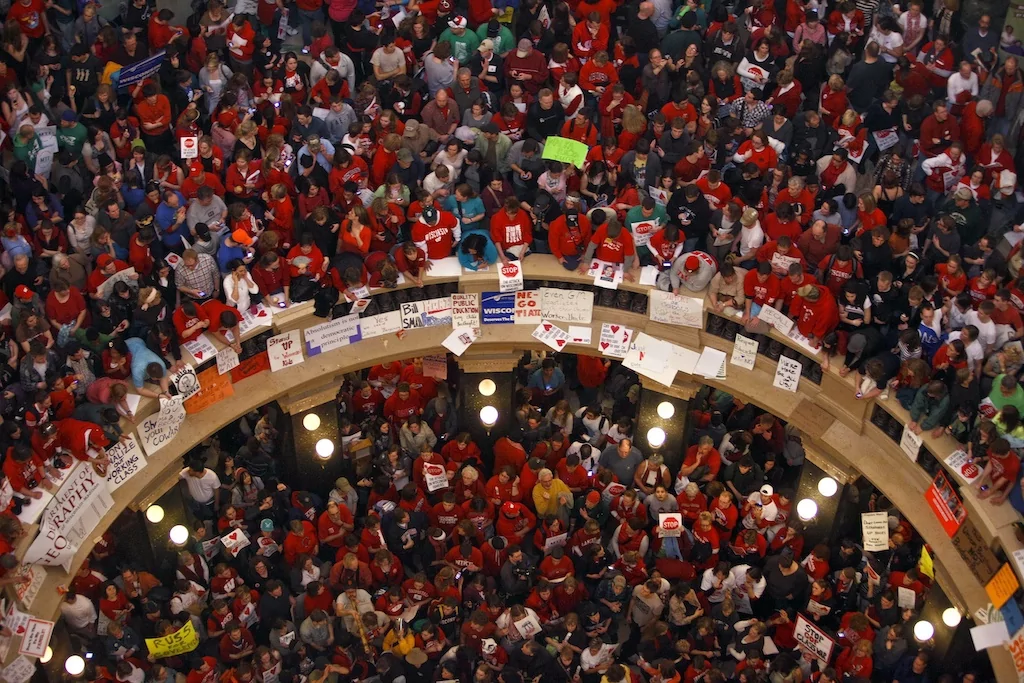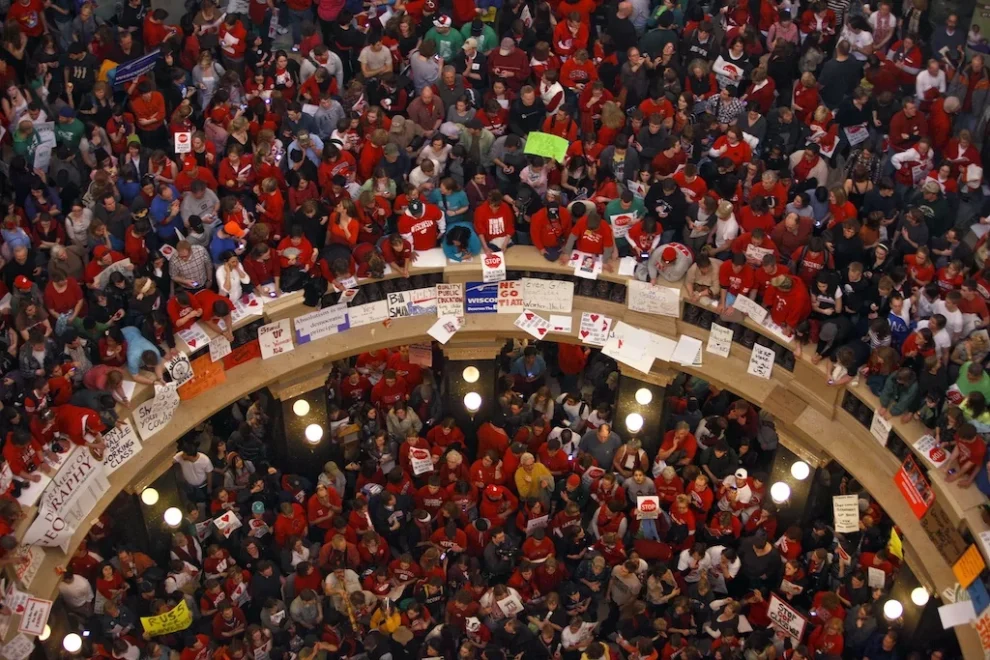Act 10, a 13-year-old Wisconsin law that sharply curtailed the bargaining rights of most public employees and eroded the power of unions, was overturned by a Dane County judge Monday.
Efforts to overturn the law that put then-Gov. Scott Walker (R-WI) in the national spotlight began late last year when seven unions and three union leaders brought the lawsuit. They argued Act 10 violated equal protection guarantees outlined in the Wisconsin Constitution by dividing public employees into two separate classes: “general” and “public safety” employees.
In the differentiation, public safety employees were exempt from the collective bargaining limitations that had been imposed on “general” public employees. Some pro-union activists saw this caveat as a way for Walker and his allies to carve out public employment they favored.
On Monday, Dane County Circuit Judge Jacob Frost ruled that certain provisions of Act 10 were unconstitutional. Frost agreed with the lawsuit, saying he couldn’t remove Act 10’s definition of “public safety employee,” which he said is “irrational and violates the right to equal protection of the laws,” while also keeping the rest of Act 10 intact.
“I cannot solve Act 10’s constitutional problems by striking the definition of ‘public safety employee,’ leaving the term undefined and leaving the remainder of the law in place,” Frost said.
His ruling built on a previous ruling that found Act 10 violated the Wisconsin Constitution’s equal protection clause because it allowed certain unions, notably those representing police, firefighters, and other public safety workers, to bargain collectively with the state while removing those rights from other public employees, notably teachers.
In an example of an alleged carveout, Walker has been highly critical of Madison, Wisconsin, the state’s capital, and the state’s flagship university, the University of Wisconsin-Madison. Under Act 10, certain police departments were exempt from the ban on collective bargaining, while police departments in Madison were not.
Frost said the courts cannot decide how the state legislature meant to define a public safety employee in Act 10, using the police as an example.
“Nobody could provide this Court an explanation that reasonably showed why municipal police and fire and State Troopers are considered public safety employees, but Capitol Police, UW Police and conservation wardens, who have the same authority and do the same work, are not,” the Dane County circuit judge said.
In his ruling, he also denied a motion filed by the Republican-controlled legislature to dismiss the case. State Republicans have to appeal the ruling, which is likely to go before the Wisconsin Supreme Court.
The law has withstood numerous legal challenges until Monday’s ruling.
The original passage of the law in 2011 barred public sector unions from negotiating over anything other than pay raises, which were tied to the rate of inflation. According to the Legislative Fiscal Bureau, the take-home pay of public sector workers who earned $50,000 annually decreased by around 8.5% due to rising health insurance and retirement benefit costs.
The law put Walker in the national spotlight as unions across the state erupted in protest, with union members, notably Wisconsin teachers unions, remaining at the Wisconsin State Capitol for weeks in protest. The protests drew as many as 100,000 people to the state Capitol.

Nonetheless, Walker and the Republican majority in both chambers of the Wisconsin state legislature passed the legislation. The law led to Walker and 13 other GOP state lawmakers facing recall fights. Walker’s recall ultimately failed.
He was unhappy with the ruling, saying in a social media post that the ruling heightens the stakes of Wisconsin’s 2025 Supreme Court election, which is now controlled 4-3 by liberal justices.
“We want a state where legislators and the governor make the laws, not the courts?” Walker wrote, adding in a second post, “Collective bargaining is not a right. It is an expensive entitlement.”
CLICK HERE TO READ MORE FROM THE WASHINGTON EXAMINER
Unions across the state celebrated the ruling Monday as collective bargaining rights were restored to many public sector jobs. Ben Gruber, a Wisconsin Department of Natural Resources conservation warden and a plaintiff in the lawsuit, said the ruling “is personal for me and my coworkers.”
“As a conservation warden, having full collective bargaining rights means we will again have a voice on the job to improve our workplace and make sure that Wisconsin is a safe place for everyone,” Gruber said. “We realize there may still be a fight ahead of us in the courts, but make no mistake, we’re ready to keep fighting until we all have a seat at the table again.”
























